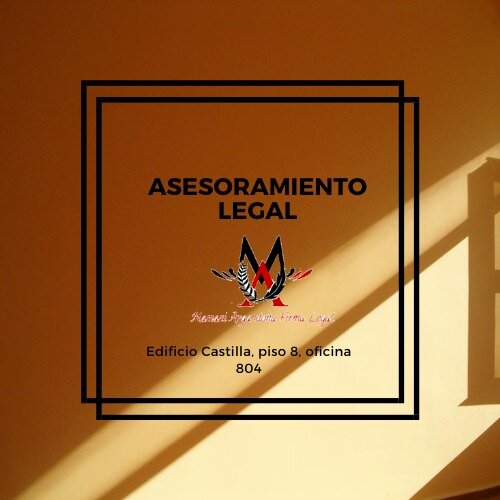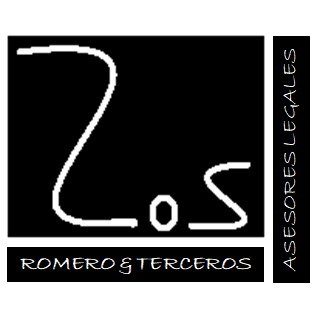Best Equity Capital Markets Lawyers in La Paz
Share your needs with us, get contacted by law firms.
Free. Takes 2 min.
List of the best lawyers in La Paz, Bolivia
About Equity Capital Markets Law in La Paz, Bolivia
Equity Capital Markets (ECM) law in La Paz, Bolivia, encompasses the legal and regulatory framework that governs the issuance, buying, and selling of equity securities such as shares in companies. This field is crucial for businesses seeking to raise capital through the public or private sale of stock and for investors looking to participate in Bolivia's financial markets. The Bolivian Stock Exchange (Bolsa Boliviana de Valores - BBV), headquartered in La Paz, is the primary marketplace for such activities. Equity Capital Markets law in Bolivia involves intricate compliance requirements, investor protections, disclosure obligations, and transactional processes that facilitate capital formation and corporate growth.
Why You May Need a Lawyer
Navigating the Equity Capital Markets in La Paz involves complex regulations and significant financial interests. Here are common scenarios in which legal assistance is indispensable:
- Launching an Initial Public Offering (IPO) or listing your company on the Bolivian Stock Exchange
- Structuring and closing private placements or secondary share offerings
- Ensuring regulatory compliance with market authorities
- Drafting and reviewing prospectuses, offering memorandums, or shareholder documentation
- Handling securities laws disputes or addressing allegations of market manipulation or insider trading
- Advising on mergers and acquisitions involving listed companies
- Assisting foreign investors with market entry and cross-border transactions
- Protecting minority shareholder rights and interests
- Managing reporting obligations and ongoing corporate governance requirements
An experienced ECM lawyer helps navigate these matters, mitigates risks, and ensures compliance, saving time and potential costs related to regulatory breaches.
Local Laws Overview
Equity Capital Markets law in La Paz operates under the national legal framework primarily defined by the Bolivian Securities Market Law (Ley del Mercado de Valores), its regulatory decrees, and rules established by the Financial System Supervisory Authority (Autoridad de Supervisión del Sistema Financiero - ASFI). Key elements include:
- Strict disclosure and transparency requirements for listed companies and new issuers
- Mandatory registration of securities and public offerings with ASFI and the BBV
- Adherence to anti-money laundering and anti-fraud rules
- Regulations regarding insider trading, conflicts of interest, and market abuse
- Reporting obligations for significant shareholdings and changes in company control
- Foreign investment regulations, including currency controls and repatriation protocols
- Ongoing corporate governance standards for publicly listed entities
La Paz, being the administrative capital, is the central hub for ECM activities and the enforcement of nationwide legal standards, making familiarity with local procedures especially important.
Frequently Asked Questions
What is the process for listing a company on the Bolivian Stock Exchange?
The process involves preparing a prospectus, obtaining shareholder approval, registering securities with ASFI and the BBV, and meeting disclosure and compliance requirements. Legal guidance is key at each step to ensure all procedures and documentation are properly handled.
Who regulates Equity Capital Markets in La Paz, Bolivia?
The main regulators are the Financial System Supervisory Authority (ASFI) and the Bolivian Stock Exchange (BBV), both of which oversee market participants, approve issuance of securities, and enforce regulations.
Are there specific rules for foreign investors in Bolivian equity securities?
Yes, foreign investors must comply with national investment regulations, including registration, currency exchange rules, and repatriation procedures. There may also be additional disclosures or restrictions depending on the sector.
What are the ongoing obligations for listed companies?
Listed companies must regularly disclose financial reports, any material information affecting share value, changes in share capital or control, and comply with corporate governance standards as set by ASFI and the BBV.
How are minority shareholders protected?
Bolivian law provides various protections, including rights to information, participation in meetings, and legal recourse against abusive actions by the majority or company insiders.
What are the penalties for securities market violations?
Penalties can include fines, suspension or delisting of securities, and even criminal prosecution in cases like fraud, intentional non-disclosure, or insider trading.
How do private placements differ from public offerings in Bolivia?
Private placements are direct offerings of equity to selected investors without public solicitation, often with fewer regulatory steps, while public offerings must be registered and comply with broader disclosure requirements.
Can digital or electronic trading take place on the BBV?
The BBV has implemented electronic trading systems. All transactions must comply with regulations, and proper recordkeeping is required.
What steps must be taken before a Bolivian company can issue new shares?
The company must obtain internal approvals, update its corporate constitution if needed, prepare offering documents, and seek authorization from ASFI and the BBV.
How long does it take to complete an IPO in La Paz, Bolivia?
The timeframe depends on company size, complexity of the offering, and regulatory review but typically ranges from several months to over a year.
Additional Resources
If you are seeking more information or assistance in Equity Capital Markets, the following resources can be helpful:
- Bolivian Stock Exchange (Bolsa Boliviana de Valores - BBV) for market rules, listings, and investor resources
- Financial System Supervisory Authority (Autoridad de Supervisión del Sistema Financiero - ASFI) for regulatory guidelines and licensing requirements
- Ministry of Economy and Public Finance for economic policies affecting capital markets
- National Chamber of Commerce and leading law firms in La Paz specializing in corporate and securities law
Next Steps
If you require legal advice or assistance regarding Equity Capital Markets in La Paz, consider the following steps:
- Identify your specific needs and gather any relevant documentation about your business or investment plans
- Contact a reputable law firm or legal specialist with experience in ECM matters in La Paz
- Schedule an initial consultation to discuss your objectives and potential legal strategies
- Collaborate with your lawyer to navigate registration, compliance, and transactional processes
- Stay informed about changes in local regulations and maintain ongoing communication with your legal advisor
Professional legal counsel can help you avoid pitfalls, ensure regulatory compliance, and efficiently achieve your goals in Bolivia's Equity Capital Markets.
Lawzana helps you find the best lawyers and law firms in La Paz through a curated and pre-screened list of qualified legal professionals. Our platform offers rankings and detailed profiles of attorneys and law firms, allowing you to compare based on practice areas, including Equity Capital Markets, experience, and client feedback.
Each profile includes a description of the firm's areas of practice, client reviews, team members and partners, year of establishment, spoken languages, office locations, contact information, social media presence, and any published articles or resources. Most firms on our platform speak English and are experienced in both local and international legal matters.
Get a quote from top-rated law firms in La Paz, Bolivia — quickly, securely, and without unnecessary hassle.
Disclaimer:
The information provided on this page is for general informational purposes only and does not constitute legal advice. While we strive to ensure the accuracy and relevance of the content, legal information may change over time, and interpretations of the law can vary. You should always consult with a qualified legal professional for advice specific to your situation.
We disclaim all liability for actions taken or not taken based on the content of this page. If you believe any information is incorrect or outdated, please contact us, and we will review and update it where appropriate.










